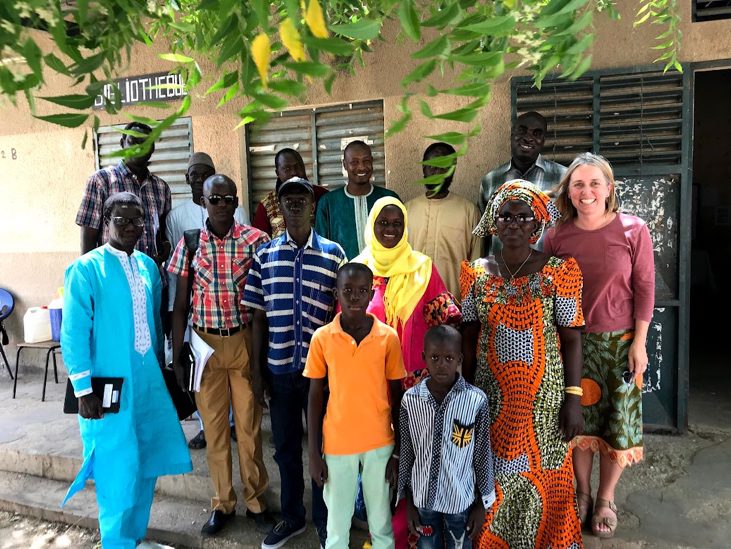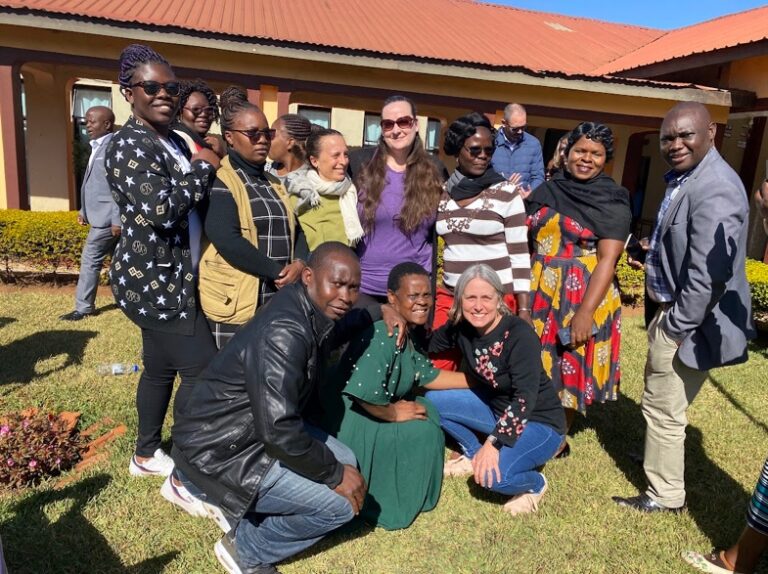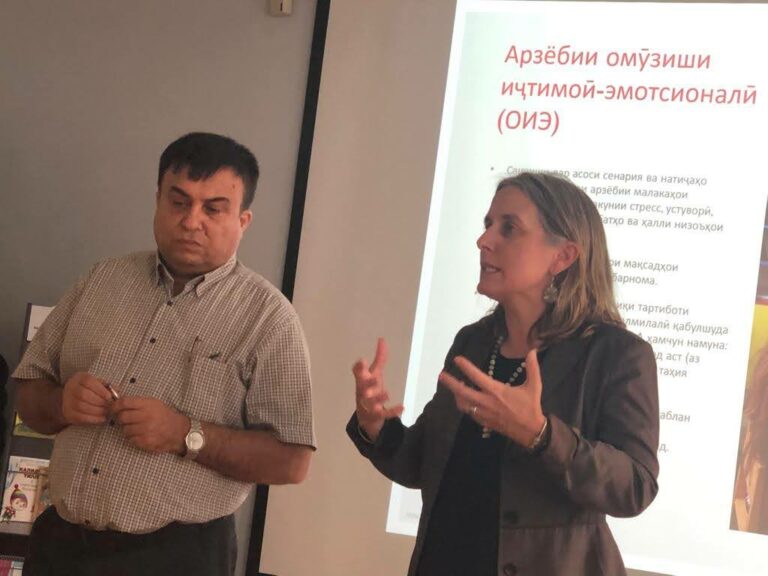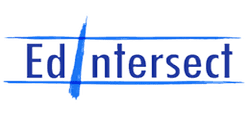EdIntersect Brings Critical Expertise to USAID in Global Education Investments for Over a Decade
by Dr. MaryFaith Mount-Cors
This article appeared in the SBAIC (Small Business Association for International Companies) July 2024 newsletter celebrating the impact and achievements of Women-Owned Small Businesses and is reprinted here.
Through the evolution of my career, I have noted that good things happen when you combine vision, drive, and expertise. I realized I could use all three by creating my own small business. I saw the need for women to bring expertise both as staff and as social enterprise leaders. To take the next step and empower others, I needed to empower myself. I had been fortunate to work with women leading organizations in Washington, D.C., like Charito Kruvant at Creative Associates, and others leading schools in North Carolina, such as Emily Bivins at Carrboro Elementary School.
While motivated by these women in leadership, I was similarly motivated by the lack of women leaders in small and large organizations both in the US and in countries where I had lived or worked. Most importantly, I was called to action by United States Small Business Administration (SBA) and USAID Office of Small and Disadvantaged Businesses (OSDBU) initiatives encouraging Women-Owned Small Businesses (WOSBs) to incorporate, register, and grow. With the policy in place to support our founding, it becomes an important framework and support structure that emboldens and legitimizes the change we are trying to empower.
Capitalizing on a strong interest and demand for education-specific expertise, I officially launched EdIntersect in April 2013. EdIntersect’s intersectional approach considers multiple factors – language group, geographic location, and socioeconomic status – that make up an individual’s membership in multiple communities. At a sectoral level, the meeting points of education, health, technology, and other areas also call for focused analysis and action.
EdIntersect’s work, in partnership with the United States Agency for International Development (USAID), includes literacy, mathematics, and social-emotional skills learning, and assessment for early primary, pre-primary, adolescents, and transitions to secondary school. This work has been conducted in collaboration with ministries of education and local actors in Malawi, Tajikistan, Senegal, Rwanda, and Mali, as a subcontractor to Chemonics International and Winrock International.
EdIntersect is a WOSB that plays a crucial role in advancing global education and recognizes the unique positioning that woman-owned businesses bring to the international development arena.
First, women bring unique insights to the table and enrich the educational landscape with varying viewpoints. In the context of small business, this often leads to innovative solutions and approaches in education. EdIntersect’s commitment to various perspectives involves asking the right questions, focusing on key concepts, and listening to different viewpoints. Conversations are rooted in the specific context and people with whom EdIntersect works. Time is given upfront to build understanding, ask lay of the land questions, gauge capabilities, and identify needs and pathways for successful collaboration with local actors.
EdIntersect recognizes that we are not the first people to explore educational assessment or other educational topics. As Dr. Louise Bahry, EdIntersect’s Technical Lead on the USAID Malawi NextGen project, explained, “EdIntersect is an organization that lives its goals values. It really feels those values. Integrity and our work are really important to us. Whether we talk about it or not…that’s a testament to the leadership.”
In addition, WOSBs empower women and girls by serving as role models and creating opportunities for mentorship and leadership development. When women entrepreneurs succeed in the education sector, they inspire others and break down barriers for future generations. EdIntersect’s commitment to engagement and empowerment means that design thinking and human-centered approaches at all levels of the education system are the goal. The approach starts with the people you are designing with and for, and ends with solutions that speak to their needs. It recognizes the importance of families, communities, teachers, leaders, governments and the whole range of actors in and around schools and homes, and in all learning spaces. Dr. Bahry offers, “All of us at EdIntersect walk into the room knowing we’ll learn as much as our participants are going to learn. We enter every space understanding we don’t know everything.”
Finally, WOSBs are often more attuned to the specific needs and challenges women and girls face in education They understand the role of family habits and socialization in addressing change pathways for girls, women, boys, and men to provide opportunity for all. Likewise, children with learning differences and those from families along the socioeconomic spectrum tend to get direct attention, rather than secondary consideration, from WOSBs.
In summary, WOSBs bring fresh perspectives, innovative energy, and know-how to the education sector. Whether building relationships with ministries and local actors, developing appropriate educational assessment systems at the national, district, or local levels, designing effective training and facilitation, or collaborating on needs across the educational spectrum, EdIntersect’s recombinant approach, building from the contextual factors and realities at play, means that innovative nuances help move the needle for overall system strengthening and enhance teaching and learning outcomes on a global scale.



